Understanding the Stakes
The journey of pregnancy is a critical period not only for the expectant mother but also for the unborn child. With the potential for a lifetime of health implications, understanding the effects of drug and alcohol use during this time is paramount. While the occasional use of substances might seem benign, the reality is starkly different. Even minimal exposure to drugs and alcohol can lead to irreversible damage to fetal development, increasing the likelihood of miscarriage, stillbirth, and conditions like sudden infant death syndrome (SIDS).
General Effects of Drug and Alcohol Use in Pregnancy
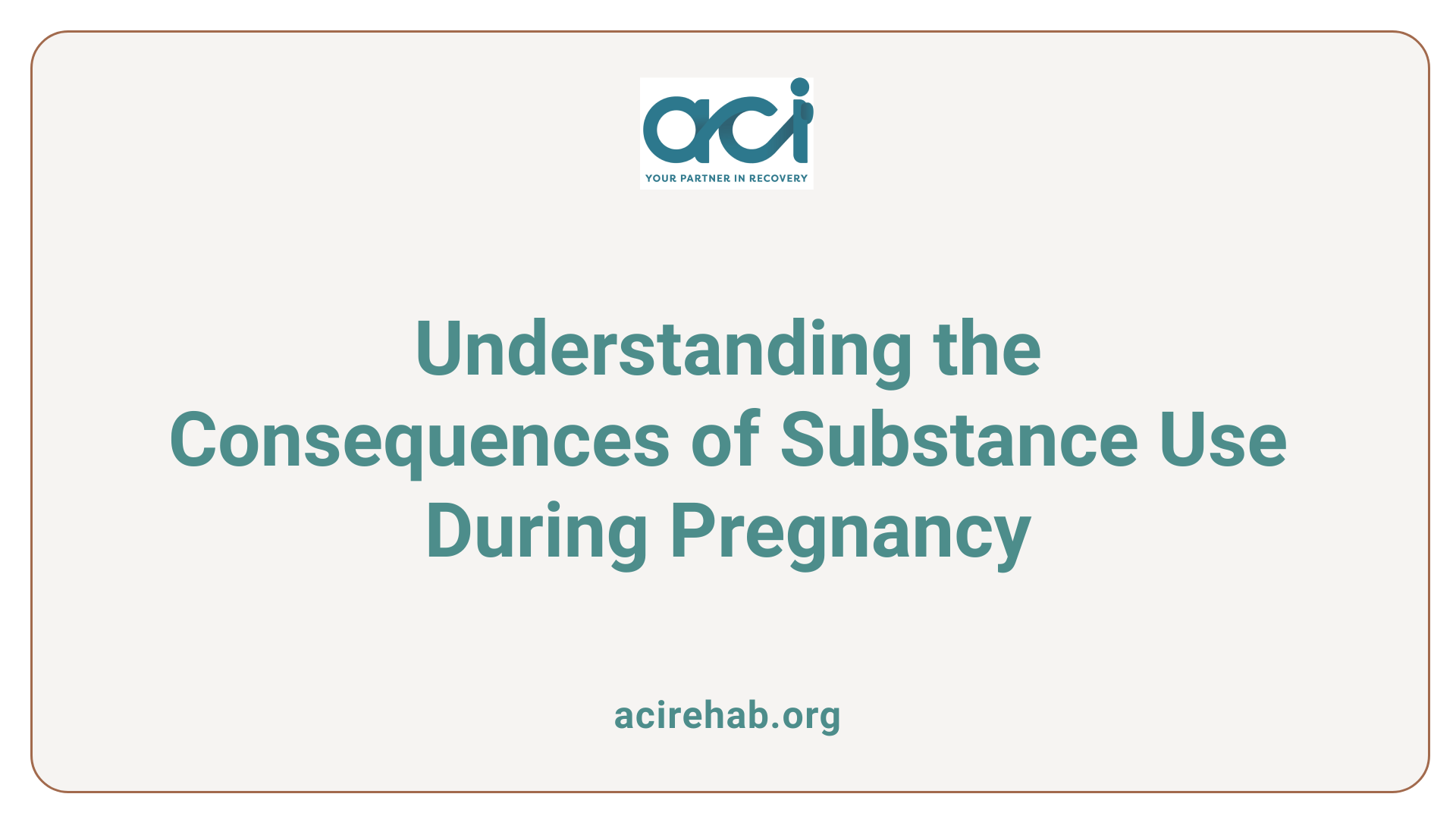
What are the general effects of drug and alcohol use during pregnancy?
The consequences of drug and alcohol use during pregnancy are severe and multifaceted. Substances such as tobacco, alcohol, and illicit drugs can easily cross the placenta, affecting the developing fetus and potentially causing severe health issues.
Increased risks include:
- Miscarriage: Maternal substance use can elevate the risk of miscarriage significantly. Alcohol, in particular, is a major contributor to miscarriage risk, with studies indicating that even small amounts can be harmful.
- Stillbirth: Pregnant women who consume drugs have a heightened risk of stillbirth. This includes both alcohol and illegal substances, which can create critical complications for fetal health.
- Sudden Infant Death Syndrome (SIDS): The use of alcohol and drugs increases the chances of infants succumbing to SIDS, with children born to mothers who smoked and drank showing a twelvefold increased risk.
Additional conditions linked to substance use include:
- Neonatal Abstinence Syndrome (NAS): Babies born to mothers who used opioids or other drugs during pregnancy may show withdrawal symptoms at birth. These can include excessive crying, irritability, and feeding difficulties.
- Fetal Alcohol Spectrum Disorders (FASDs): Alcohol exposure can lead to various developmental impairments known as FASDs, resulting in physical deformities, cognitive delays, and social difficulties.
Overall, the use of drugs and alcohol during pregnancy poses significant health risks, not just for the immediate postpartum period but throughout the child’s life.
Mechanisms of Drug Action in Pregnant Women
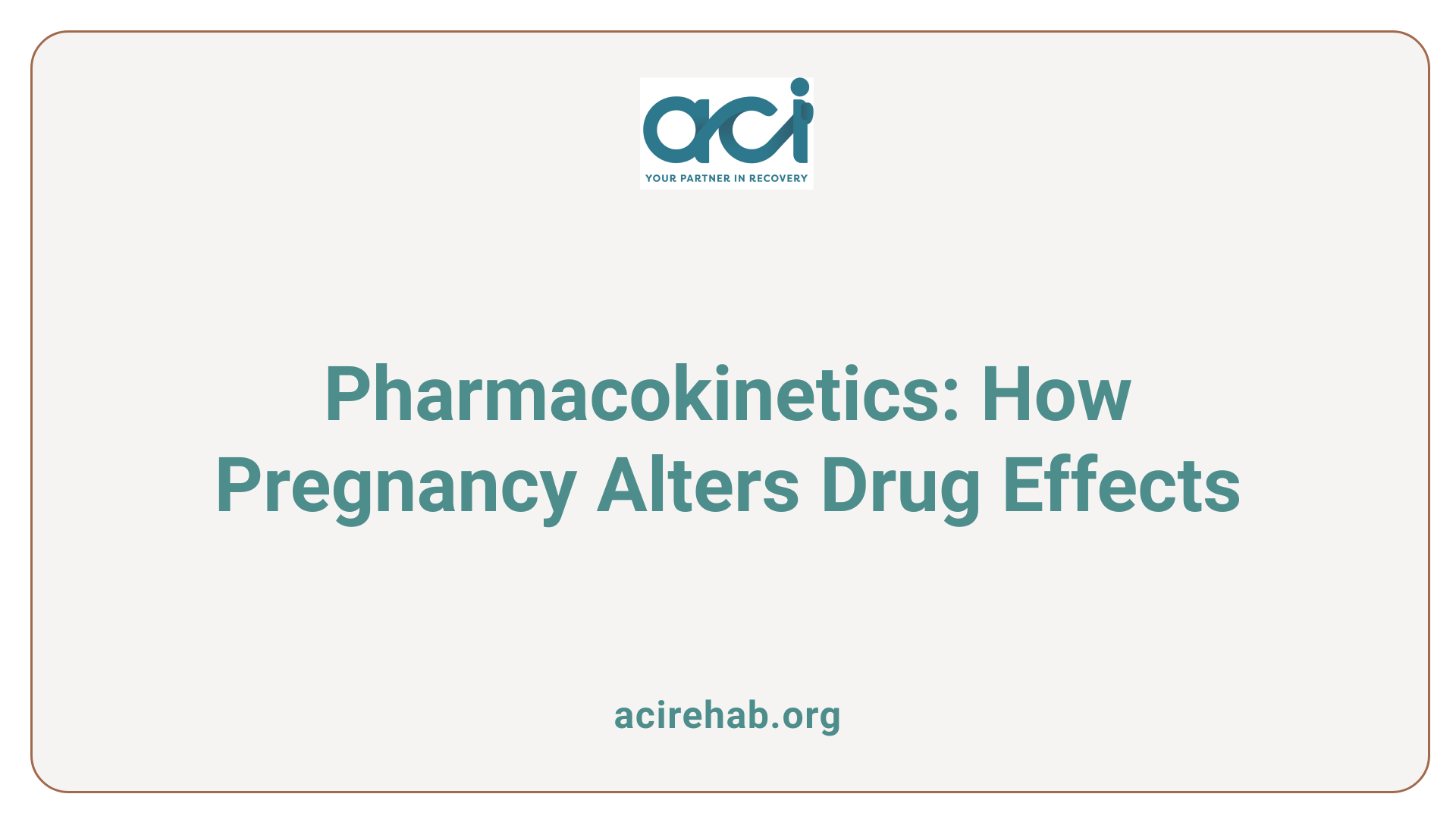
How does pregnancy affect drug action?
Pregnancy significantly alters maternal physiology, impacting how drugs are processed and their effects. During pregnancy, several physiological changes occur:
- Increased Blood Volume: Maternal blood volume increases by up to 50%, potentially enhancing the distribution of hydrophilic drugs.
- Altered Cardiac Output: Increased cardiac output can lead to faster systemic circulation of drugs.
- Changes in Protein Binding: Variations in plasma protein levels may affect drug availability, especially for highly protein-bound medications.
As a result of these changes, there may be a need to adjust dosages of various medications to achieve optimal therapeutic effects while minimizing risks.
What happens to drug metabolism in pregnancy?
Renal function is also significantly affected in pregnant women. The glomerular filtration rate increases, leading to increased clearance of drugs and necessitating adjustments for those primarily eliminated via the kidneys. Additionally, changes in liver enzyme activity can either accelerate or decelerate the biotransformation of drugs. For example, the cytochrome P450 enzyme system may be induced or inhibited, altering the metabolism of certain medications.
What are the implications for drug use in pregnancy?
Given that over two-thirds of pregnant women take medications, often prescribed without considering these physiological changes, it is crucial to monitor drug administration closely. Insights into medication safety during pregnancy can guide better treatment strategies to ensure the well-being of both mother and child. Updated clinical guidelines are needed to reflect these dynamic changes in drug action during the perinatal period.
Risks of Prenatal Substance Exposure
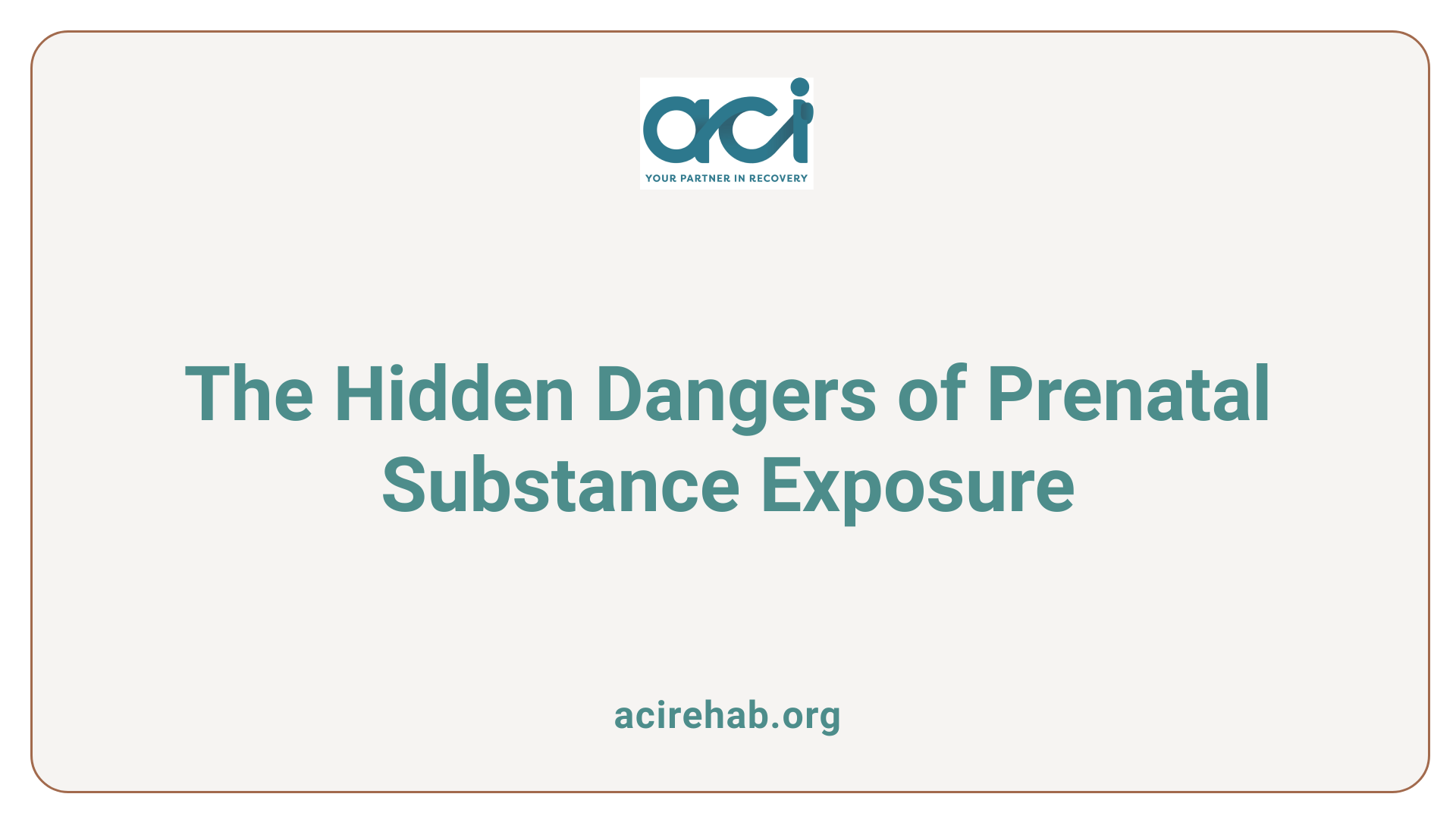
What are the risks associated with prenatal exposure to drugs and alcohol?
Prenatal exposure to drugs and alcohol carries significant risks for offspring, leading to a range of behavioral problems. Children exposed to substances in utero may exhibit externalizing behaviors, impulsivity, and a higher likelihood of developing substance use disorders (SUDs) later in life. Research indicates that adolescents with prenatal exposure are more prone to early alcohol and drug use, which is a critical predictor for the emergence of SUDs.
Some specific outcomes of prenatal alcohol exposure include fetal alcohol spectrum disorders (FASD). FASD encompasses various developmental impairments, including cognitive delays and behavioral issues that can persist throughout a child’s life. These challenges can manifest as difficulties with motor coordination, learning disabilities, and social integration.
Moreover, prenatal smoke exposure, particularly to cigarettes, is linked to an increased risk of smoking during adolescence, along with a greater incidence of attention deficit hyperactivity disorder (ADHD) and self-regulation challenges. The long-term implications of prenatal substance exposure are profound, affecting not only health outcomes but also emotional functioning, interpersonal skills, and educational achievement.
The overall evidence suggests that pregnant individuals should work closely with healthcare providers to avoid substance use, thereby safeguarding the lifelong health and behavior of their children.
Impact of Alcohol, Smoking, and Drugs on Fetal Development
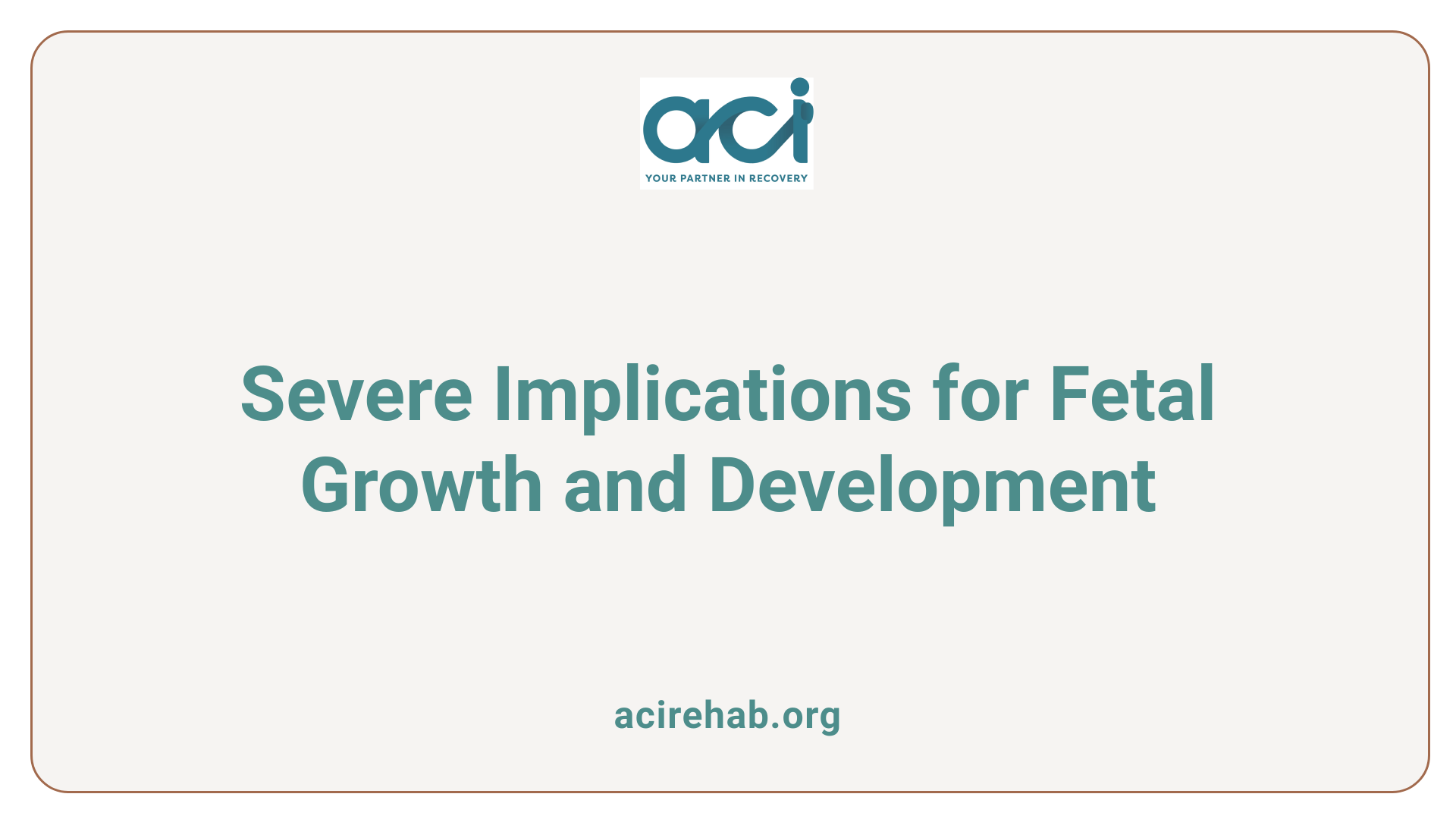
What are the effects of alcohol, smoking, and drugs on the fetus?
Alcohol, smoking, and illegal drugs can have severe effects on a fetus during pregnancy.
Fetal Alcohol Syndrome (FAS)
Alcohol consumption can lead to Fetal Alcohol Syndrome (FAS) and Fetal Alcohol Spectrum Disorders (FASDs). This includes a range of serious repercussions for the child, such as:
- Growth Issues: Babies may showcase physical growth deficiencies.
- Mental Disabilities: This can manifest as cognitive delays and learning difficulties.
- Birth Defects: Abnormal facial features and other physical anomalies are often observed.
Low Birth Weight
Smoking during pregnancy is significantly linked to low birth weight. This may result from the adverse effects of nicotine and other chemicals that impair fetal growth. Low birth weight increases the risk of:
- Premature birth
- Long-term health complications
- Higher susceptibility to infections and developmental delays
Developmental Problems
Illegal drug use is another critical concern for fetal health. Drugs such as cocaine, cannabis, and opioids can interfere with normal fetal development, leading to:
- Developmental delays
- Higher risks of conditions like Sudden Infant Death Syndrome (SIDS)
- Behavioral issues later in life
It is crucial for pregnant women to avoid these substances entirely to promote a healthier pregnancy and reduce risks to their baby. The potential consequences highlight the need for education and support for expectant mothers regarding substance use.
Specific Risks of Smoking and Alcohol
Cognitive Deficits
Pregnant women who smoke or consume alcohol expose their unborn children to severe risks, including cognitive deficits. Babies exposed to nicotine or alcohol may face lifelong challenges such as learning disabilities, behavioral issues, and difficulties with attention and impulse control. These cognitive impairments can manifest as struggles with school performance and social interactions.
Low Birth Weight
Both smoking and alcohol use during pregnancy significantly increase the risk of low birth weight. Infants born to mothers who smoke are often smaller and may face further complications like premature birth. Alcohol consumption can also lead to fetal growth issues, contributing to low birth weight, which can result in long-term health problems and developmental delays.
Stillbirth
The risks associated with smoking and alcohol consumption during pregnancy are dire, including the potential for stillbirth. Research indicates that mothers who smoke or drink alcohol significantly increase the likelihood of their babies being stillborn. This highlights the critical importance of avoiding these substances during pregnancy to protect fetal health and ensure healthier outcomes.
Illegal Drugs and Pregnancy: The Hidden Dangers
Cocaine
Cocaine use during pregnancy can lead to severe complications for both the mother and the fetus. It is associated with an increased risk of miscarriage, low birth weight, and premature birth. Babies exposed to cocaine may also experience withdrawal symptoms and are more likely to have birth defects, particularly concerning heart health. Additionally, they may suffer from cognitive and behavioral issues as they grow, including deficits in language and attention.
Opioids
Opioid use during pregnancy poses significant risks, including poor fetal growth and an increased likelihood of neonatal abstinence syndrome (NAS). Infants exposed to opioids in utero may show symptoms of withdrawal such as excessive crying, irritability, and feeding difficulties shortly after birth. Treatment for these babies is essential to alleviate withdrawal symptoms and support their development.
Neonatal Abstinence Syndrome (NAS)
NAS can affect infants exposed to opioids, prescription drugs, or illegal drugs during pregnancy. Symptoms include tremors, seizures, and feeding issues. These infants often require special care to manage withdrawal symptoms and ensure their health and well-being. Addressing substance use during pregnancy is crucial to preventing NAS and promoting healthier outcomes for both mothers and babies.
| Substance | Risks to the Fetus | Potential Long-term Effects |
|---|---|---|
| Cocaine | Miscarriage, low birth weight, birth defects | Cognitive deficits, behavioral problems |
| Opioids | Poor growth, NAS, withdrawal symptoms | Long-term attention and memory issues |
| NAS | Withdrawal symptoms at birth | Developmental challenges |
Recommendations for Health and Wellness During Pregnancy
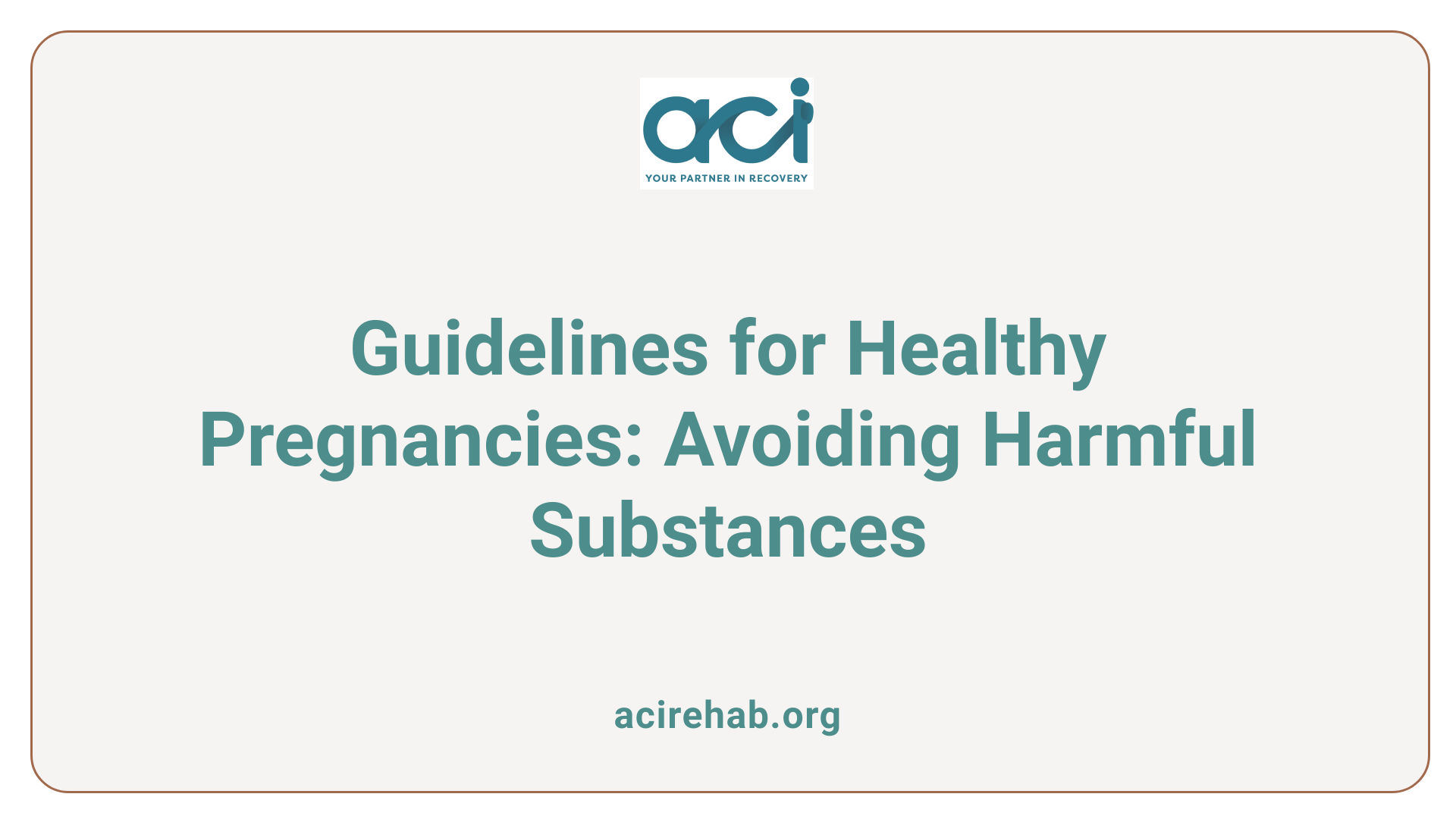
Avoidance of Substances
To ensure optimal health for both mother and baby, it is crucial for pregnant women to abstain from substances such as tobacco, alcohol, and illicit drugs. These substances can cross the placenta and significantly impact fetal development. Risks include low birth weight, preterm birth, and potential long-term cognitive and behavioral issues for the child. All types of alcohol, regardless of quantity, are unsafe during pregnancy and can cause fetal alcohol spectrum disorders (FASDs), leading to both physical and mental challenges.
Support Resources
For those struggling with substance use, seeking help is vital. Many support services offer confidential assistance tailored for expectant mothers. Consulting healthcare professionals can provide guidance on safe medication use while ensuring both mother and child receive the required care. Available resources include:
| Type of Support | Resource | Description |
|---|---|---|
| Healthcare Consultation | GP or Midwife | Guidance on medication and substance use |
| Support Groups | Local/Online Support Services | Confidential assistance and community support |
| Counseling Services | Psychological Counseling | Address mental health alongside substance use |
Early intervention can lead to better outcomes for both the mother and baby.
Treatment Resources and Preventative Strategies
Substance Use Disorder
Expectant mothers struggling with substance use are encouraged to seek help. Substance use disorder during pregnancy can lead to serious health implications for both mother and child. Therefore, timely intervention is crucial to address these issues. Various resources, including counseling and support groups, can provide much-needed assistance. Pregnant women can benefit from comprehensive care strategies aimed at helping them achieve sobriety and minimize risks to their babies.
Healthcare Guidance
Healthcare providers play an essential role in guiding pregnant individuals on the risks associated with substance use. It’s recommended that pregnant women consult with their doctor or midwife about any medications they’re taking, including prescription and over-the-counter drugs. Holistic evaluations help determine the best approach tailored to their unique situations while ensuring the health of the baby. Implementing preventative strategies alongside treatment is vital for improving both maternal and infant outcomes. Regular prenatal visits and open conversations about substance use can significantly enhance health and safety during pregnancy.
| Treatment Resources | Preventative Strategies | Key Recommendations |
|---|---|---|
| Counseling and Support Groups | Abstaining from substance use | Consult healthcare providers about medications |
| Behavioral Intervention Programs | Education on risks of substance use | Regular prenatal check-ups |
Seeking Help and Moving Towards a Healthy Pregnancy
Understanding and acknowledging the risks associated with drug and alcohol use during pregnancy is the first step toward ensuring the well-being of both mother and baby. With ample resources and support networks available, pregnant women are not alone in this journey. Healthcare providers play a crucial role in offering guidance and monitoring, and it’s essential that pregnant individuals or those planning to conceive seek professional advice. Importantly, creating awareness around these issues can foster environments that reduce stigma and promote healthier behaviors. By prioritizing health and abstaining from harmful substances, expectant mothers can pave the way for healthier generations to come.
References
- Substance Use While Pregnant and Breastfeeding
- Effects of Drug Use During Pregnancy | Florida Department of Health
- Developmental Consequences of Fetal Exposure to Drugs – Nature
- Substance Use During Pregnancy | Maternal Infant Health – CDC
- Drug Use and Pregnancy – WebMD
- Drinking alcohol while pregnant – Pregnancy – NHS
- Substance Use During Pregnancy | Patient Education – UCSF Health
- Substance use during pregnancy – PMC
- Polysubstance Use During Pregnancy – CDC
- Alcohol or Drug Use During Pregnancy – MyHealth Alberta

